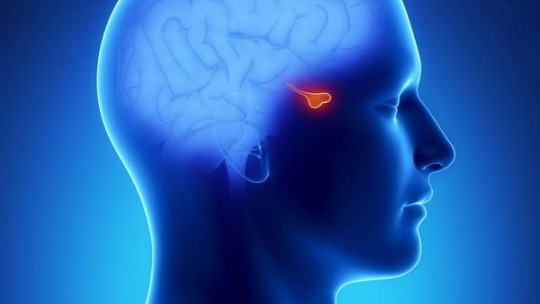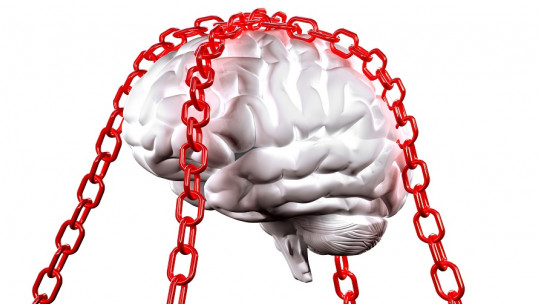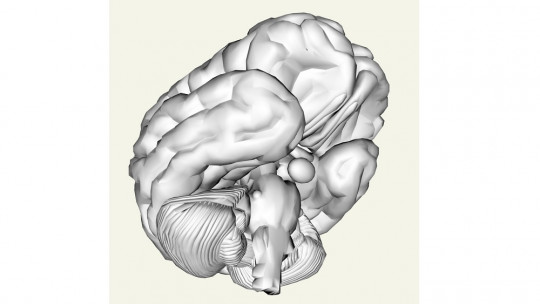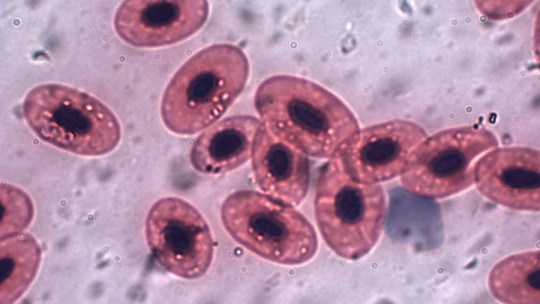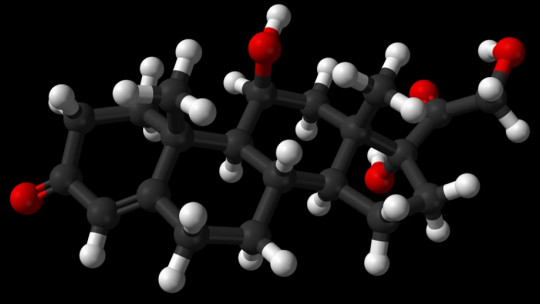
There is a lot of talk lately about stress, a phenomenon known as “the epidemic of the 21st century.” The pace of life we lead, the socioeconomic situation and the working conditions to which we are subjected contribute significantly to the appearance of this condition.
Cortisol is one of the hormones associated with stress along with adrenaline, and its main function is to prepare the body for the moments of greatest activation in which it is necessary to be alert. Stress is an adaptive response that prepares our body to carry out a fight or flight response to a dangerous or threatening stimulus. However, when this phenomenon occurs daily and becomes chronic, pathological stress appears that causes serious problems for physical and mental health.
What is cortisol
Cortisol, Also known as hydrocortisone, it is a glucocorticoid It is produced above the kidneys, in an area known as the adrenal cortex, in response to stress (physical or emotional), and its synthesis and release is controlled by the adrenocorticotropic hormone (ACTH) and its circadian rhythm.
In the morning, the amount of cortisol rises until reaching its peak around 8:00 am (taking into account a normal sleep schedule), due to the need to generate energy sources after a long night. In the afternoon it also increases to keep us active, but then it decreases progressively.
Stress hormones: cortisol and adrenaline
Cortisol and adrenaline They are two related hormones with stress but that have different functions. Understanding the function of each of these chemicals can help us understand what happens in our body when we face a stressful stimulus. The reaction to stress is an instinctive behavior that has allowed the survival and development of human beings, since our body is programmed to act in emergency or dangerous situations.
However, what has worked so well for us throughout history creates serious problems today due to the way we humans live. Likewise, this phenomenon not only occurs when faced with physical stimulation, but our thoughts can also cause stress (for example, when a person suffers from post-traumatic stress and constantly relives a stressful situation from the past), which can lead us to a situation of physical and mental exhaustion excessive.
How adrenaline works
When faced with a stressful stimulus, adrenaline gives us a quick boost, so that our energy increases and thus we can escape danger. Breathing, pulse and heart rate speed up so your muscles respond more quickly. The pupils dilate, the blood circulates at a higher speed and it moves away from the digestive system to avoid vomiting. In general, the entire body prepares to react quickly to certain stimuli, so that it does not act at too slow a pace.
These physiological functions of adrenaline are complemented by other psychological functions such as keeping us alert and being more sensitive to any stimulus. Adrenaline, in addition to being a hormone, is also a neurotransmitter that acts in the brain. In this way, an intense dialogue is established between the nervous system and the rest of the body, which is very useful when processes have to be triggered that affect many areas of the body in a short time.
What function does it have in alarm situations?
In stressful situations, the level of cortisol also increases. Its main functions are increase the amount of sugar in the blood, and also suppress the immune system to save energy and help the metabolism of fats, proteins and carbohydrates. This may be very appropriate for a specific moment, but not when the stressful situation is part of our daily lives.
The release of sugar in the blood has the function of maintaining an appropriate energy level to respond effectively to the situation of stress and allows us to be alert. In reality, it is adrenaline in the brain that sends the signal for glucose to be released into the bloodstream (known as blood sugar), but cortisol contributes to its synthesis. It also contributes to the use of fats and proteins as energy substrates.
As we have seen, another response of cortisol to a stressful situation is that inhibits the immune system, because all the energy is necessary to control stress. In addition, this hormone also causes an increase in histamine, which explains why people tend to get sicker or suffer from herpes or allergies when they suffer from this phenomenon.
Relationship with stress
The excess cortisol derived from staying in stressful situations for a long time causes certain imbalances due to the energy drain we are experiencing Some of the symptoms that we can suffer are the following:
When stress manifests itself for a long time, then it is possible to experience complex symptoms of anxiety, feelings of failure, insomnia or depression.
Other consequences of excess of this hormone
Although cortisol has a bad reputation because it is associated with something as negative as chronic stress or burnout, in the human body it performs a large number of vital functions. Among other things, it allows our rhythms to adapt to the rhythm that certain situations demand of us, such as moments in which our physical integrity may be in danger or when a test that we must overcome is approaching. Although the sensation is not always pleasant, that does not mean that it is not necessary or practical.
However, in the long term it causes a series of unwanted effects. For example, the production of cortisol, whether due to deficiency or excess, can interfere with thyroid hormone production and the conversion of these from T4 to T3.
Cortisol disrupts the reproductive system, causing infertility or even miscarriage when cortisol levels are too high or chronically elevated. In addition, the chronic increase in cortisol can cause intense hunger and food cravings due to the metabolic disorder that occurs, and also influences mental blocks and memory problems related to the feeling of “going blank.”
Conclusion
Cortisol is a stress-related hormone that in itself it is not negative Now, when stress becomes chronic and pathological, it can create a series of problems or negative consequences for the person. These consequences include:
If you are going through a stressful situation and want to know what you should do, in this article: “10 essential tips to reduce stress” you can find some keys to combat it.


